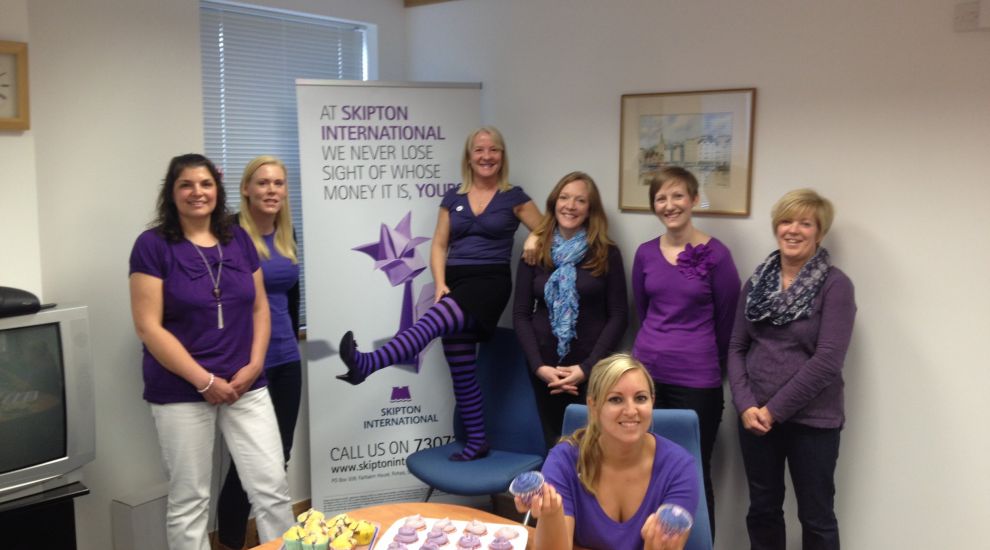

Bank Skipton International is calling on islanders to support International Purple Day to raise awareness of epilepsy.
The Channel Island bank’s staff will be wearing purple to work to raise funds for the Epilepsy Association. One in 100 people suffer from epilepsy in some form, with one in 20 having an epileptic seizure of some kind in their lives.
Vikki Militis started having seizures in 2005 when she was in her early 20s and is now married with two children. Doctors are unable to find the cause or control her condition.
"Epilepsy is so varied - it’s not just about dropping on the floor and shaking or about flashing lights," she said. "I’ve had many different types of seizure and have tried five different medications but when my brain is scanned it looks normal. People with epilepsy appear normal - you can’t tell someone has it just by looking at them. Yet I have a disability and the biggest impact for me is the fact I’m not able to drive: getting around Jersey on buses with a pushchair and two small children isn’t easy."
Skipton International Managing Director Jim Coupe is calling on other companies to help raise awareness of epilepsy and support fundraising by wearing purple. "There are many of our colleagues, friends and fellow islanders who suffer from this chronic condition and for those that do it is frightening and frustrating. As small island communities in the Channel Islands, we have limited specialist services and so it’s important that we all show our support for sufferers and let them know they are not alone."
Purple Day was started in 2008 by a nine-year-old Canadian girl. She chose the colour purple because in some cultures the lavender flower is associated with solitude, which represents the feelings of isolation many people affected by epilepsy feel.
You can get involved by visiting: https://www.epilepsy.org.uk/involved/fundraise-events/purple-day
To support Jersey Epilepsy Association please make cheques payable to: Jersey Epilepsy Association, and send to: Ken Le Brun, Treasurer, Les Beaux Reves, La Dimerie, St Mary, JE3 3DP.
Facts about epilepsy:
Comments
Comments on this story express the views of the commentator only, not Bailiwick Publishing. We are unable to guarantee the accuracy of any of those comments.